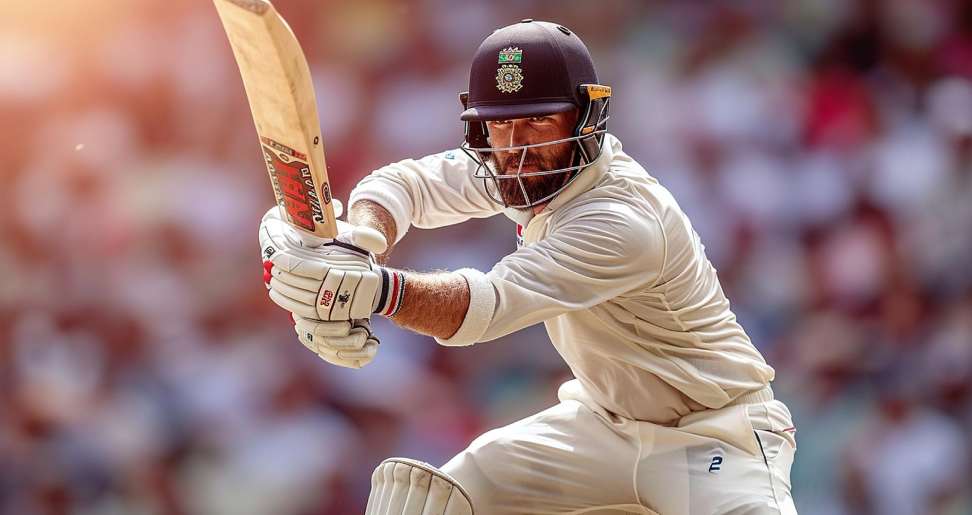Cricket is not just a sport; it’s a global phenomenon that unites millions of fans and players across different countries. From the bustling streets of Mumbai to the serene villages of England, cricket has made its mark as one of the most popular sports in the world. However, the game’s immense popularity has also necessitated a comprehensive framework of legal governance to ensure fair play, integrity, and accountability. In this context, the importance of understanding the legal aspects of cricket, often referred to as “Laser247,” becomes evident. The term “Laser247” highlights the 24/7 vigilance required to monitor and enforce legal regulations in cricket, ensuring the game remains a beacon of sportsmanship and fair competition.
The Framework of Legal Governance in Cricket
Legal governance in cricket encompasses a wide array of regulations and laws designed to maintain the sport’s integrity. These regulations are not only confined to the rules of the game but also extend to issues such as player conduct, anti-corruption measures, and safeguarding against illegal betting and match-fixing. The International Cricket Council (ICC) plays a pivotal role in setting these regulations, which are adhered to by member nations to ensure a standardized approach to the game.
One of the critical aspects of legal governance in cricket is maintaining the sport’s integrity. This involves strict anti-corruption measures, which have been a significant focus for the ICC and other cricketing boards worldwide. With the advent of numerous leagues and tournaments globally, like the Indian Premier League (IPL), the need for stringent regulations has become more pressing. The involvement of entities like “Play99exch,” which cater to cricket fans’ betting needs, further necessitates robust legal frameworks to prevent any undue influence on the game’s outcome.
The Role of Anti-Corruption Units
The ICC’s Anti-Corruption Unit (ACU) is a dedicated body that works tirelessly to combat corruption in cricket. The ACU’s primary function is to monitor and investigate any suspicious activities that may threaten the game’s integrity. The unit works closely with national cricket boards and law enforcement agencies to ensure that cricket remains a fair and transparent sport. The influence of illegal betting syndicates and the lure of easy money have made players vulnerable to corruption, thereby making the ACU’s role even more critical.
Over the years, several high-profile cases have emerged, bringing to light the dark underbelly of cricket. The infamous 2010 spot-fixing scandal involving Pakistani cricketers is a stark reminder of how corruption can tarnish the game’s reputation. This incident led to severe repercussions, including lifetime bans and criminal convictions for the players involved. Such cases underscore the importance of continuous vigilance and strict enforcement of anti-corruption laws in cricket.
Legal Challenges and Player Conduct
Cricket, like any other sport, is not immune to controversies surrounding player conduct. Legal governance in cricket also extends to maintaining discipline on and off the field. The ICC’s Code of Conduct outlines the expected behavior of players and support staff during international matches. Breaching this code can result in various sanctions, including fines, suspensions, or even bans, depending on the severity of the offense.
For instance, instances of ball-tampering, such as the one involving the Australian cricket team in 2018, highlight the need for clear and enforceable rules regarding player conduct. The incident, popularly known as “Sandpapergate,” resulted in significant penalties for the players involved, including lengthy suspensions and a tarnished reputation. Such incidents not only bring the players into disrepute but also reflect poorly on the sport as a whole.
The Role of Sports Law in Cricket
Sports law, as a specialized field, has grown significantly over the years, with cricket being one of the primary beneficiaries. Sports lawyers play a crucial role in advising cricket boards, players, and other stakeholders on various legal issues, including contracts, endorsements, and disputes. They also represent players in cases involving disciplinary actions or legal disputes with their respective cricket boards or other entities.
Sports law also encompasses issues related to player safety and welfare. With the increasing awareness of player safety, particularly concerning head injuries and concussions, cricket boards have been compelled to adopt more stringent safety protocols. Legal frameworks now mandate comprehensive safety measures, such as the use of protective gear and the introduction of concussion substitutes, to safeguard players’ well-being.
The Impact of Technological Advancements
Technological advancements have also played a pivotal role in shaping the legal governance of cricket. The introduction of the Decision Review System (DRS) and other technological innovations has revolutionized how cricket matches are officiated, ensuring a higher level of accuracy in decision-making. However, these advancements also bring forth legal implications, particularly regarding the standardization and use of technology across different formats and tournaments.
Moreover, the rise of digital platforms and social media has created new challenges for cricket’s legal governance. Issues related to broadcasting rights, digital piracy, and online defamation have become more prevalent, requiring a nuanced approach to legal regulation in the digital age. The role of sports lawyers has become even more critical in navigating these complex issues and ensuring that cricket adapts to the evolving technological landscape.
The Role of National Cricket Boards
While the ICC sets the global regulations for cricket, national cricket boards play a crucial role in enforcing these rules at the domestic level. These boards are responsible for developing and implementing policies that align with the ICC’s regulations while addressing their unique challenges. For instance, the Board of Control for Cricket in India (BCCI), one of the most influential cricket boards globally, has its own set of rules and regulations to govern the sport within India. The BCCI’s role in managing player contracts, endorsements, and disciplinary actions showcases the multifaceted nature of legal governance in cricket.
National boards also work closely with law enforcement agencies to tackle issues such as match-fixing, illegal betting, and corruption. In countries where cricket is immensely popular, like India, Pakistan, and Australia, these boards have a significant responsibility to uphold the sport’s integrity. The involvement of betting platforms like “Lotus365” further emphasizes the need for robust legal frameworks to regulate and monitor betting activities, ensuring they do not compromise the spirit of the game.
Conclusion: The Future of Legal Governance in Cricket
As cricket continues to evolve, so too will the legal frameworks that govern the sport. The increasing commercialization of cricket, coupled with the growing influence of digital media and technology, presents new challenges and opportunities for legal governance. The role of legal frameworks in ensuring fair play, safeguarding players’ interests, and maintaining the sport’s integrity cannot be understated.
The involvement of stakeholders like “Laser247,” “Play99exch,” and “Lotus365” in various capacities within the cricketing ecosystem further highlights the importance of a comprehensive legal approach. Moving forward, the collaboration between the ICC, national cricket boards, legal experts, and other stakeholders will be crucial in navigating the complex landscape of modern cricket. Only through robust legal governance can cricket continue to thrive as a global sport that embodies the values of fairness, integrity, and sportsmanship.
Read More:
- How Much Does Elon Musk Make A Second
- Scrapzo: Revolutionizing Scrap Management
- Warren Buffett – Biography, Lifestyle, Net Worth

